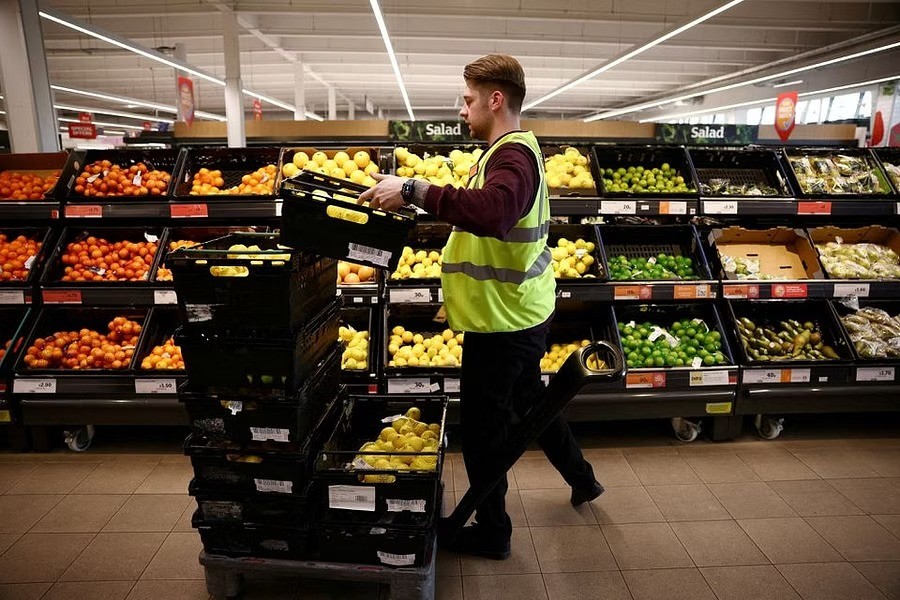Inflation-pinched British consumers cut spending by the most in the key shopping month of December in at least 25 years, official data showed on Friday, dashing hopes for a Christmas boost for the country's flagging retail sector.
Sales were down by 5.8 per cent compared with December 2021, the biggest fall for that month in records going back to 1997, and the ninth month in a row that they fell in annual terms.
Month-on-month, sales unexpectedly fell by 1 per cent from November, the Office for National Statistics said, confounding a forecast for a 0.5 per cent increase in a Reuters poll of economists.
Olivia Cross, with consultancy Capital Economics, said the surprise fall suggested that some of the resilience seen in the economy towards the end of last year petered out in December.
"What's more, we think the bulk of the drag on activity from high inflation and rising interest rates has yet to be felt and will weigh more heavily on retail spending and the overall economy in 2023," she said.

A survey published earlier on Friday showed a first drop in three months in consumer confidence in January which fell back close to its lowest level since at least 1974.
Britain's economy is widely expected to fall into a recession.
Retail sales volumes fell by 3.0 per cent in 2022, their worst full-year performance since at least 1997.
Heather Bovill, the ONS's deputy director for surveys and economic indicators, said food sales had risen in November as shoppers stocked up early for Christmas, but they fell again in December with supermarkets linking the drop to higher food prices and the rising cost of living, she said.
Non-food stores sales volumes fell by 2.1 per cent over the month as consumers cut back on non-essential spending. Food sales fell by 0.3 per cent in December after a rise of 1.0 per cent in November.
In terms of value, overall spending was down by a month-on-month 1.2 per cent from November.
On Thursday, Bank of England Governor Andrew Bailey sounded a more hopeful note on the outlook for the economy this year, saying two consecutive falls in inflation in recent months was "the beginning of a sign that a corner has been turned."
Helen Dickinson, chief executive of the British Retail Consortium, said many of the cost pressures facing retailers and their customers remained in 2023 but she also said the situation will improve in the second half of the year.
Christmas trading updates from Britain's biggest retailers, including Tesco, Sainsbury's and Marks & Spencer, were better-than-expected with shoppers returning to stores at the expense of online a key trend.
The ONS said online sales fell in December with strikes by postal workers believed to have encouraged people to buy more goods in stores.


